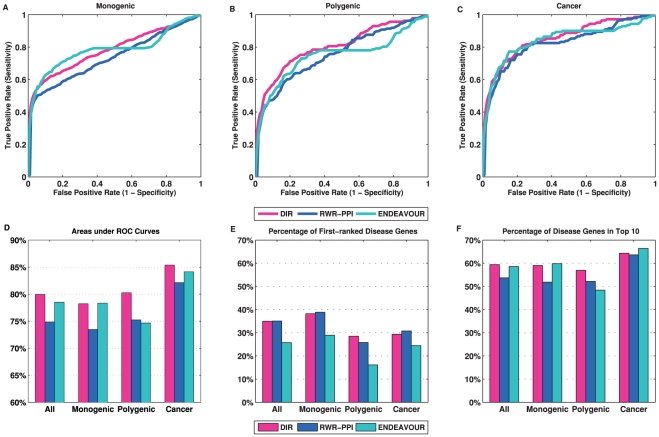In the ever-evolving landscape of remote work, where the boundaries between personal and professional life blur, multitasking has become a seemingly indispensable skill. With the freedom to work from anywhere and the constant influx of digital distractions, it’s no wonder that juggling multiple tasks simultaneously has become the norm. However, beneath the surface of this seemingly efficient approach lies a hidden danger that threatens productivity, mental well-being, and ultimately, the quality of work. In this article, we delve into the perils of multitasking in remote work, shedding light on the consequences that often go unnoticed amidst the allure of doing it all at once.
Table of Contents
- The Myth of Productivity: Unveiling the Hidden Dangers of Multitasking
- The Cognitive Overload: How Multitasking Impacts Remote Work Performance
- Maintaining Focus and Efficiency: Strategies to Combat the Temptation of Multitasking
- The Art of Prioritization: Effective Time Management in Remote Work
- Creating Boundaries: Setting Realistic Expectations to Avoid Multitasking Pitfalls
- Q&A
- The Conclusion

The Myth of Productivity: Unveiling the Hidden Dangers of Multitasking
Picture this: you’re sitting at your desk, juggling multiple tasks simultaneously, convinced that you’re being incredibly productive. But what if I told you that multitasking is nothing more than a myth? In fact, it may be doing more harm than good. Let’s delve into the hidden dangers of multitasking and why it’s time to rethink our approach to productivity.
The Illusion of Efficiency: Multitasking gives us the illusion of being efficient, as if we’re accomplishing more in less time. However, research has shown that our brains are not wired to handle multiple tasks simultaneously. Instead of saving time, we end up wasting it by constantly switching between tasks, losing focus, and making more mistakes. Our productivity suffers, and the quality of our work diminishes.
The Cognitive Overload: When we multitask, our brains become overwhelmed with information, leading to cognitive overload. We may think we’re being productive, but in reality, our attention is divided, and our ability to concentrate on any one task diminishes. This overload can result in increased stress levels, decreased creativity, and impaired decision-making skills. It’s like trying to juggle too many balls at once – sooner or later, they all come crashing down.
The Importance of Single-Tasking: To truly maximize productivity, it’s time to embrace the power of single-tasking. By focusing on one task at a time, we can give it our undivided attention, allowing for deeper concentration and better results. Single-tasking enables us to prioritize effectively, complete tasks more efficiently, and ultimately achieve a higher level of quality in our work. So, let’s debunk the myth of multitasking and start reaping the benefits of single-tasking.

The Cognitive Overload: How Multitasking Impacts Remote Work Performance
Remote work has become increasingly prevalent in today’s digital age, offering flexibility and convenience for employees. However, the allure of multitasking can often lead to a cognitive overload that negatively impacts work performance. The ability to juggle multiple tasks simultaneously may seem impressive, but it comes at a cost.
Here are some ways in which multitasking can hinder remote work performance:
- Reduced focus and attention: When we divide our attention among various tasks, our ability to concentrate on each individual task diminishes. This can result in decreased productivity and a higher likelihood of errors.
- Increased stress levels: Constantly switching between tasks can lead to heightened stress levels, as our brains struggle to keep up with the demands of multitasking. This can negatively impact our overall well-being and job satisfaction.
- Impaired decision-making: Multitasking can impair our ability to make sound decisions. When our attention is divided, we may overlook important details or fail to consider all available options, leading to suboptimal choices.
It is important for remote workers to recognize the cognitive overload caused by multitasking and find strategies to mitigate its effects. Prioritizing tasks, setting clear boundaries, and practicing mindfulness can help improve focus and productivity. By understanding the impact of multitasking on remote work performance, individuals can strive for a healthier and more efficient work-life balance.

Maintaining Focus and Efficiency: Strategies to Combat the Temptation of Multitasking
When it comes to maintaining focus and efficiency, it’s easy to fall into the trap of multitasking. However, studies have shown that multitasking can actually hinder productivity and lead to more mistakes. So, how can we combat the temptation of multitasking and stay on track?
1. Prioritize and plan: Start by identifying your most important tasks and prioritize them accordingly. Create a to-do list or use a task management tool to keep track of your responsibilities. By having a clear plan in place, you can avoid the urge to jump from one task to another.
2. Break it down: Large tasks can be overwhelming and make it easier to get distracted. Break them down into smaller, more manageable chunks. This not only helps you stay focused but also gives you a sense of accomplishment as you complete each subtask.
3. Eliminate distractions: Minimize external distractions by turning off notifications on your phone or computer. Find a quiet and clutter-free workspace where you can concentrate without interruptions. Additionally, consider using website blockers or time management apps to limit access to distracting websites or social media platforms.
4. Practice mindfulness: Train your mind to stay present and focused on the task at hand. Take short breaks to clear your mind and recharge, but avoid getting caught up in unrelated activities. By practicing mindfulness, you can improve your concentration and productivity.
5. Delegate and collaborate: Don’t be afraid to ask for help or delegate tasks when necessary. Working as a team can not only lighten your workload but also ensure that each task receives the attention it deserves. Collaboration can also bring fresh perspectives and ideas, enhancing overall efficiency.
By implementing these strategies, you can combat the temptation of multitasking and maintain focus and efficiency in your work. Remember, it’s better to give your full attention to one task at a time rather than spreading yourself too thin and risking mistakes.

The Art of Prioritization: Effective Time Management in Remote Work
When it comes to remote work, one of the most crucial skills to master is the art of prioritization. With the freedom and flexibility that remote work offers, it’s easy to get overwhelmed by the multitude of tasks and distractions that can arise throughout the day. However, by implementing effective time management strategies, you can ensure that you stay focused and productive, no matter where you’re working from.
1. Identify your most important tasks: Start by making a list of all the tasks you need to accomplish. Then, prioritize them based on their importance and urgency. This will help you stay organized and ensure that you tackle the most critical tasks first.
2. Break tasks into smaller, manageable chunks: Large projects can often feel overwhelming, leading to procrastination and decreased productivity. To combat this, break down your tasks into smaller, more manageable chunks. This not only makes them less daunting but also allows you to track your progress more effectively.
3. Utilize time-blocking techniques: Time-blocking is a powerful technique that involves scheduling specific blocks of time for different tasks or activities. By allocating dedicated time slots for each task, you can minimize distractions and maintain a clear focus on your priorities.
By mastering the art of prioritization and implementing effective time management strategies, you can optimize your productivity and achieve success in your remote work journey. Remember, it’s not just about working harder, but working smarter.
Creating Boundaries: Setting Realistic Expectations to Avoid Multitasking Pitfalls
When it comes to multitasking, we often find ourselves juggling multiple tasks simultaneously, hoping to accomplish everything on our never-ending to-do lists. However, this constant state of multitasking can lead to decreased productivity, increased stress levels, and a lack of focus. To avoid falling into the multitasking pitfalls, it is crucial to set realistic expectations and establish clear boundaries.
1. Prioritize your tasks: Start by identifying the most important tasks that require your immediate attention. By prioritizing your tasks, you can focus on completing one task at a time, ensuring that each task receives the attention it deserves.
2. Allocate dedicated time slots: Instead of trying to tackle everything at once, allocate dedicated time slots for each task. This allows you to give your undivided attention to one task before moving on to the next, increasing efficiency and reducing the chances of errors.
3. Communicate your boundaries: Let your colleagues, friends, and family know about your boundaries and expectations. Clearly communicate your availability and let them know when you will be fully focused on your work. By setting these boundaries, you can minimize interruptions and create a conducive environment for productivity.
Remember, setting realistic expectations and boundaries is not about limiting yourself but rather about optimizing your productivity and well-being. By avoiding the multitasking pitfalls, you can achieve better results, reduce stress, and maintain a healthy work-life balance.
Q&A
What is multitasking?
Multitasking refers to the act of performing multiple tasks simultaneously or switching between tasks rapidly.
Why is multitasking considered dangerous in remote work?
Multitasking in remote work can lead to decreased productivity, increased stress levels, and a decline in the quality of work. It can also hinder focus and concentration, making it difficult to complete tasks efficiently.
Does multitasking save time?
Contrary to popular belief, multitasking does not save time. In fact, it often leads to time wasted on switching between tasks and the need to refocus each time, resulting in a longer overall completion time for each task.
How does multitasking affect productivity?
Multitasking can significantly reduce productivity as it divides attention and prevents individuals from fully engaging in a single task. This can lead to errors, incomplete work, and a lack of attention to detail.
Can multitasking impact the quality of work?
Yes, multitasking can negatively impact the quality of work. When attention is divided, it becomes challenging to give each task the necessary focus and effort, resulting in a decrease in the overall quality of work produced.
What are the consequences of multitasking on mental health?
Multitasking can contribute to increased stress levels and mental fatigue. Constantly switching between tasks can lead to feelings of overwhelm and burnout, affecting overall mental well-being.
How can one avoid multitasking in remote work?
To avoid multitasking, it is important to prioritize tasks, create a schedule, and allocate specific time blocks for each task. Additionally, minimizing distractions, setting boundaries, and practicing mindfulness can help maintain focus on one task at a time.
Are there any benefits to multitasking?
While multitasking is generally discouraged, there are certain situations where it can be beneficial, such as when performing simple and repetitive tasks that do not require much cognitive effort. However, for complex and important tasks, it is best to avoid multitasking.
The Conclusion
As we wrap up our exploration into the treacherous realm of multitasking in remote work, it becomes abundantly clear that the allure of juggling multiple tasks simultaneously is not without its perils. While the modern world may celebrate the ability to seamlessly switch between assignments, it is crucial to acknowledge the hidden dangers lurking beneath the surface.
In this fast-paced era, where technology reigns supreme and distractions are aplenty, it is easy to fall into the trap of multitasking. The temptation to conquer a multitude of tasks at once can be irresistible, promising increased productivity and efficiency. However, as we have discovered, this seemingly magical ability to divide our attention can lead to a myriad of negative consequences.
The first danger we encountered was the decline in overall productivity. Contrary to popular belief, attempting to tackle multiple tasks simultaneously often results in a decrease in the quality of work produced. Our brains are not wired to handle such a heavy cognitive load, and as a result, important details can slip through the cracks, leading to errors and oversights.
Furthermore, the toll multitasking takes on our mental well-being cannot be ignored. Constantly switching between tasks can lead to heightened stress levels, as our brains struggle to keep up with the ever-increasing demands. The constant bombardment of information and the pressure to perform at a high level in multiple areas can leave us feeling overwhelmed and exhausted.
Another peril we uncovered was the detrimental impact on our ability to focus and concentrate. Multitasking fragments our attention, preventing us from fully immersing ourselves in any one task. This lack of deep focus not only hampers our ability to produce quality work but also diminishes our capacity for creativity and problem-solving.
Lastly, we must not overlook the potential strain multitasking places on our relationships, both personal and professional. When we attempt to divide our attention between work, family, and friends, we risk neglecting the very connections that bring meaning to our lives. The constant distractions and divided focus can erode the quality of our interactions, leaving us feeling disconnected and unfulfilled.
In conclusion, the dangers of multitasking in remote work are far from trivial. While the allure of juggling multiple tasks may be enticing, it is essential to recognize the toll it takes on our productivity, mental well-being, focus, and relationships. As we navigate the ever-evolving landscape of remote work, let us strive for balance and mindfulness, embracing the power of single-tasking and allowing ourselves the space to excel in one endeavor at a time. Only then can we truly harness our full potential and thrive in this new era of work.
As an affiliate, my content may feature links to products I personally use and recommend. By taking action, like subscribing or making a purchase, you’ll be supporting my work and fueling my taco cravings at the same time. Win-win, right?
Want to read more? Check out our Affiliate Disclosure page.